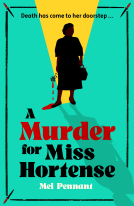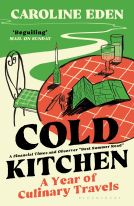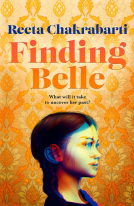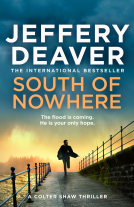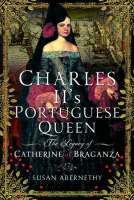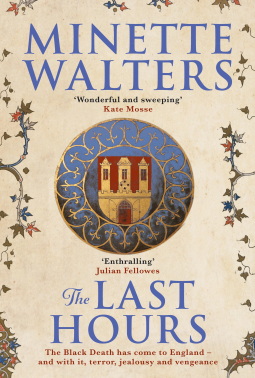
The Last Hours
by Minette Walters
This title was previously available on NetGalley and is now archived.
Send NetGalley books directly to your Kindle or Kindle app
1
To read on a Kindle or Kindle app, please add kindle@netgalley.com as an approved email address to receive files in your Amazon account. Click here for step-by-step instructions.
2
Also find your Kindle email address within your Amazon account, and enter it here.
Pub Date 2 Nov 2017 | Archive Date 13 Oct 2017
Atlantic Books | Allen & Unwin
Description
Minette Walters has been a master of crime fiction for nearly two decades. Now this extraordinary writer turns her talents in a bold new direction; a sweeping, utterly gripping historical novel set during the time of the Black Death in Dorset.
June, 1348: the Black Death enters England through the port of Melcombe in the county of Dorsetshire. Unprepared for the virulence of the disease, and the speed with which it spreads, the people of the county start to die in their thousands.
In the estate of Develish, Lady Anne takes control of her people's future - including the lives of two hundred bonded serfs. Strong, compassionate and resourceful, Lady Anne chooses a bastard slave, Thaddeus Thurkell, to act as her steward. Together, they decide to quarantine Develish by bringing the serfs inside the walls. With this sudden overturning of the accepted social order, where serfs exist only to serve their lords, conflicts soon arise. Ignorant of what is happening in the world outside, they wrestle with themselves, with God and with the terrible uncertainty of their futures.
Lady Anne's people fear starvation but they fear the pestilence more. Who amongst them has the courage to leave the security of the walls?
And how safe is anyone in Develish when a dreadful event threatens the uneasy status quo...?
Available Editions
| EDITION | Hardcover |
| ISBN | 9781760632137 |
| PRICE | £20.00 (GBP) |
Featured Reviews
 Keith C, Educator
Keith C, Educator
How clever of Minette Walters to take all the ingredients of a post-apocalypse dystopia and feed them into a real historical period, that of the Black Death in Fourteenth Century Dorset. Mass death, ignorance of causes, collapse of society, a small group of survivors working together against all sorts of perils, lawless outsiders – all the elements are here.
On the death of her brutal husband, Lady Anne brings all the community within the boundary of the manor house and imposes strict hygiene and sharing of all resources, irrespective of social standing. For years she has been quietly educating the serfs of the estate and she promotes one of them, Thaddeus Thurkell, to be her steward. The community appear safe behind their walls, as the plague rages elsewhere, but then human nature intervenes…
This is really cracking story, one which made me happy that there is to be a second volume. Walters writes beautifully and packs thrills and revelations by the score into a narrative which I found I just could not put down.
 Debra F, Reviewer
Debra F, Reviewer
I do like a decent historical novel. I like it to have excellent research, plenty of historical detail, good characterisations & a solid plot. That is quite a big ask but I do feel that this book ticked the boxes. Okay maybe it wasn't perfect in places but it was a good read.
The black death comes to Dorseteshire. The small demense of Develish is as unprepared as every other place in England. However, the Lady of the Manor, Lady Anne, takes action whilst her husband is away & settles the demense into a state of quarantine.
I very much enjoyed this book, particularly the first half. I felt that it started to slow down & loose its way a little in the second half of the book which could have done with some editing to keep it on track. However, this wasn't enough to prevent me reading the second half & enjoying it very much. This is clearly leading into a sequel which I shall look forward to.
The setting of the book is excellent. I did feel as if we were in the era with the struggles and ignorance of the time. Would Lady Anne have acted in the way she did towards her serfs? Who knows but it certainly worked well within the book. Lady Eleanor, her daughter, certainly presents the picture that one imagines of the minor gentry of the period with her demands for rights and spoilt tantrums. Her Father, Sir Richard, who appears in little of the book also shows this picture quite clearly and I have no problem believing that many Lords did behave in this manner.
I am a great fan of Karen Maitland's work and would have no hesitation in recommending this book to fans of her work. It is well constructed with an excellent setting. The plot works well despite its slowing as the book progressed. I look forward to the next in the series.
I received a free copy of this book via Netgalley.
I’ve not read Minette Waters before who I believe is mainly a crime writer. I do read a lot of historical fiction though (based on real history only) and I can say I thoroughly enjoyed this book especially as a social history, which I haven’t yet delved into very deeply before; my usual history appetite concerns royal families and their trials, tribulations, murders and abuses. This is something different which although didn’t stop my breathing (!), definitely gave me chills and horrors over situations I’d never even considered that the ‘ordinary person’ of the time had to contend with.
The story is based in a Dorsetshire Manorhouse (Develish) at the time of the Black Death. Lady Anne was married off at 14 years old to the overbearing, sexual predator Sir Richard Develish, by her unsympathetic Uncle. She has a spoiled, selfish stepdaughter, Eleanor who is betrothed to the Lord of Bradmayne. Sir Richard and his entourage set off to visit this lesser Manor aiming to sort out the dowry/arrangements etc. While they are visiting the ‘pestilence’ makes itself known at Bradmayne and the prospective groom, and some of Sir Richard’s entourage are infected.
The story tells of how Lady Anne endeavours to keep ‘her’ people (Sir Richard’s serfs – who she encourages to seek their freedom) safe from the pestilence and indeed from the feudal system itself. I think it’s everyone’s fantasy that there were ‘strong’ women of the time who questioned the feudal system and in so doing, also the church and its overbearing support of that system. I don’t know if these women were allowed to exist (for long!) but Ms Waters does not stint on the level of physical and sexual domination males held over all women at the time, and how even highborn women were seen as ‘chattels’ of their husbands. Rape and abuse was rife; mix this with disease, filth, ignorance and the Feudal oaths of loyalty endorsed by the church and you have a recipe for horror.
What struck me strongly was that I had never before considered how people keeping themselves ‘quarantined’ (though they didn’t know they were doing so, at the time) for long periods might never learn when the Black Death was ‘over’ – if there was no-one left to let them know, or even if there were, how people started talking to each other again when everyone was considered a threat of infection. Mistrust, fear and ignorance were widespread. And as the infection returned year on year to a greater or lesser extent, I use the term ‘over’ very loosely anyway. Outside their walls they had no idea where the next living person might be.
A lot of fascinating details (e.g wooden locks, how to make a shelter, the glorious tanning process(!), how to secure a wide necked bottle to carry liquid, how to procure a recipe to cause abortion or make painkillers) of the time are like extra little jewels along the way. I love how painstakingly this has been researched, but I do have to say the end is ABRUPT and I’m definitely not satisfied with it! (Bring on part 2 – and quickly). This was a let-down as I do think individual books should have a proper ending and I was SO looking forward to a particular aspect of this one – which hasn’t been resolved or even mentioned yet… At the same time, Ms Waters is stacking up her audience for the next instalment. I can only hope it’s going to be soon.
 Stephanie C, Reviewer
Stephanie C, Reviewer
Excellent book - Great characters and plot. I would highly recommend this book.
The Last Hours, Minette Walters
Review from Jeannie Zelos book reviews
Genre: General fiction (adult), Historical fiction
I've read a few of Minette's books, some I loved, some not so much, but i do love a Good historical novel and she writes settings and characters, that whether I enjoyed the story or not, feel so very real.
This one was just perfect, a real escape into the past, at times horribly sad, graphically real, and reminding me of just how unfair life was for the largest section of the population.
I've read a few books set in the Era of the Plague, the Black Death, a terrible time that decimated the population.
At that time disease was rife anyway, subject to poor nutrition people succumbed to what would be minor illnesses now, as they had so little resistance . Hygiene was poor too, making it easy for viruses and diseases to spread.
Lady Anne has turned around life on her husband's estate, with measures such introducing dug out latrines rather than throwing excrement into the moat and urinating wherever they wanted. She introduced practices such as washing too, bodies and clothes, and slowly she introduced education. As they learned the villagers began to understand what she was practising, saw results in less sickness, better health.
Of course all her husband cared about was yields and taxes, and as the population became healthier those increased. Had he bothered to take note of her actions he would have fiercely disapproved and stopped them, but luckily he was typical in that he didn't take not of how serfs lived, felt they were beneath his notice.
Sir Richard is a sorry reflection of how so many Lords were then (sadly how many would be now if they could get away with it!) Self important, cared for nothing and no-one beyond himself, and felt he was above reproach so long as his pet priest gave him absolution. He was paying him, the guy's living depended on his goodwill so why wouldn't he?
Its one of those things that's always amazed me, that absolution wipes away all sins, leaving the perpetrator free to do them all over again, knowing the priest will remove them. That buying of "indulgences " too is something that always made me cross.
People were so focused on God, and yet made his words fit the lives they wanted to live rather than vice versa. There have been some real atrocities perpetrated because of, and in the name of God.
Then along came the plague. Was it cast by God onto those who had sinned? For a largely ignorant populace its easier to believe that than to think they have nothing to fight it.
Lady Anne feels differently though, when it comes her husband is away, and she refused him entrance back to the place on his return. She had walled it off and brought the villagers inside the castle grounds to keep everyone safe.
He's been to a demesne where the Plague is rife, many of the men who went with him are dead, and the few who have returned are ill. She knows if he's allowed in the plague will spread fast. She asks tells him they have left stores for the men, and after a period without illness they can come in.
I've read real life accounts where villages closed themselves off like this, some because they wanted to keep the plague out, some because they wanted to keep the infection contained, knowing it was too late to save themselves, they either were going to get it or survive regardless.
There are some incredible characters here, from the courageous and intelligent Lady Anne, her horrible daughter Eleanor, the sly french steward Hugh, and some of the key characters among the villagers. Thaddeus is one of those, born a bastard, he has managed to stay free by way of some tacit advice from lady Anne. He's wise enough to keep that quiet, and Sir Richard hasn't yet noticed he has not sworn allegiance as the others all have to.
I enjoyed reading the day to day life, how they dealt with the threat from outside, managed the food, and later, how they had to decide what to do about the future, how long stores would last, whether it was safe to go outside and search for more, and of course what would happen to a country ravaged by plague, or whether it was just their corner of England that was infected.
Given only the top people ever traveled, with perhaps a steward and a few guards, most had no knowledge of the world outside their village. One five miles away could have easily been five hundred for most of them, they never left the estate of Devilish.
Its a story that shows characters in their true light, who is lazy, who is opportunist, who had the foresight to plan ahead. It also has some pretty graphic cruelty that was sadly so very real. The villagers were regarded as property, disposable to their Lords, they would be beaten and whipped at whim, the young girls subject to abuse and there was nothing they could do.
As the novel continues there are secrets to be revealed that put a different light on some things from the past, and of course affect the possible future.
Its a fabulous read, made me feel i was there with the characters. I liked too Lady Anne's journal, her dilemma of just how much she could include, whether it would help others in the future if they did all die, or if it would put them in danger if they survived. After all with Sir Richard dead and no sons from their marriage, she was once more a Lady with no power, no say in her life, and likely to be married off elsewhere, with Devilish turned over to someone new.
The only thing I didn't like was the end, its very, very abrupt, and until I reached the end I hadn't realised there was another book to come. And not til next autumn....oh, I so hate waiting when I've got so engrossed in these peoples lives.
Stars: five, a very worthy five star read, but i so wish the next book was here now...
ARC supplied for review purposes by Netgalley and Publishers
 Glynis E, Reviewer
Glynis E, Reviewer
Loved it, loved it, loved it. Do not I need to say more?
This historical novel captured the whole period for me. The characters were so well drawn they jumped out of the page.. The smells, the sights of old Dorset were described in such breathtaking detail.
I was absolutely devastated to find this wasn’t a stand alone and I will have to wait for the next instalment.
A must for any lover of Pillars of the Earth. This is your next book.
An 'insiders' view of what people had to endure during the Black Plague. There are some strong and unique characters, who enrich the book and keep the reader hooked from start to finish. Looking forward to enjoying the next in this series.
 Elizabeth B, Reviewer
Elizabeth B, Reviewer
I am a lover of all of Minette Walter's previous books and I will admit to a slight worry at the change from gripping mystery and gruesome criminal acts to historical fiction.
I have read a number of books about the plague in the 14th century; the speed with which it travelled and the devastation that cut swathes relentlessly through Europe.
MW sets this book in rural Dorsetshire, in England, in the demesne of Sir Richard Develish - a Norman with no saving graces. A cruel man who thought nothing of raping serfs as young as ten and putting the blame on the girls. His marriage to the fourteen year old, convent raised Saxon, Lady Anne put a stop to his carnality in his own yard.
As his own daughter reaches an age to be married Sir Richard and his retinue of soldiers set out to discuss dowry terms with another noble. Whilst guests in a filthy manor with faeces running in the streets feeding rats which live in every corner they contract the plague.
Meanwhile Lady Anne has done her all to turn Develish into a sanctuary for daughter and serfs alike.
The degree of attention MW has paid to every detail in this book is stunning. Her descriptions of the Norman lords and Saxon serfs; their language, dress, mannerisms; the crops, animals and countryside of the time and the vivid picture of the stages of the contagion speak of impeccable and exhaustive research.
There is more to come,more to learn, more to enjoy. I read this book in one sitting. It is far too good to put down.
 Kath M, Reviewer
Kath M, Reviewer
The story takes place over a few months, after the great plague, the Black Death, comes to Britain. Sir Richard of Develish sets out with his retinue and much of his gold, to visit a neighbour with the intention of sealing a marriage for his daughter, Eleanor. The men fall sick and very few return to Develish, where Richard’s wife, lady Anne, refuses them entry for two weeks, to ensure the sickness doesn’t enter the moated settlement. Richard and all his followers but one, a serf, die of the plague. The hero of the tale is the bastard son of a serf, never acknowledged by his mother’s husband, and visibly different from all around him, being very tall, dark haired and olive skinned.
The richness of this story is in the detail. The corruption of the church, the total hold the lord has over those serfs in his demesne, the arrogance of the Norman French in their dealings with the local people, are very well presented. The surviving serfs, solely responsible for growing and harvesting the vital crops, are in many places starving themselves to death because their lords have gone north to try to escape the sickness, leaving their slaves to await their return in terror of being held to account for missing sheep and crops. The book is very compelling, filled with rich characters and a believable storyline. There’s more to come and I’ll be delighted when it’s ready. I want to pick it up and follow these people and their lives.
Thanks to Netgalley and the publisher from whom I received an advance copy for review.
Readers who liked this book also liked:
Jenny Linford; National Trust Books
Cooking, Food & Wine, History, Travel

